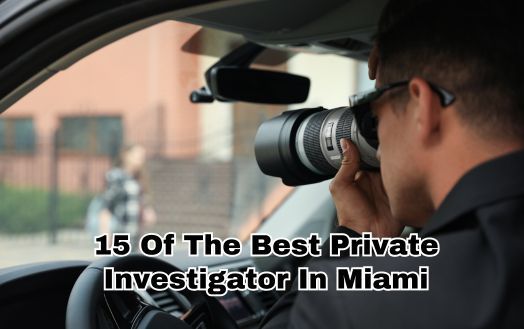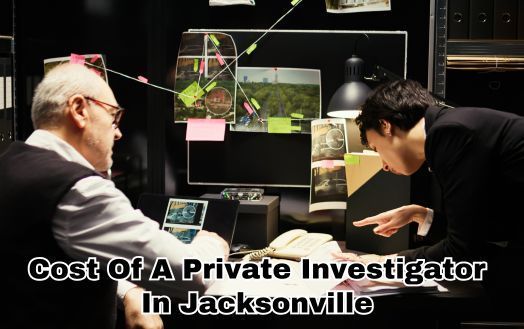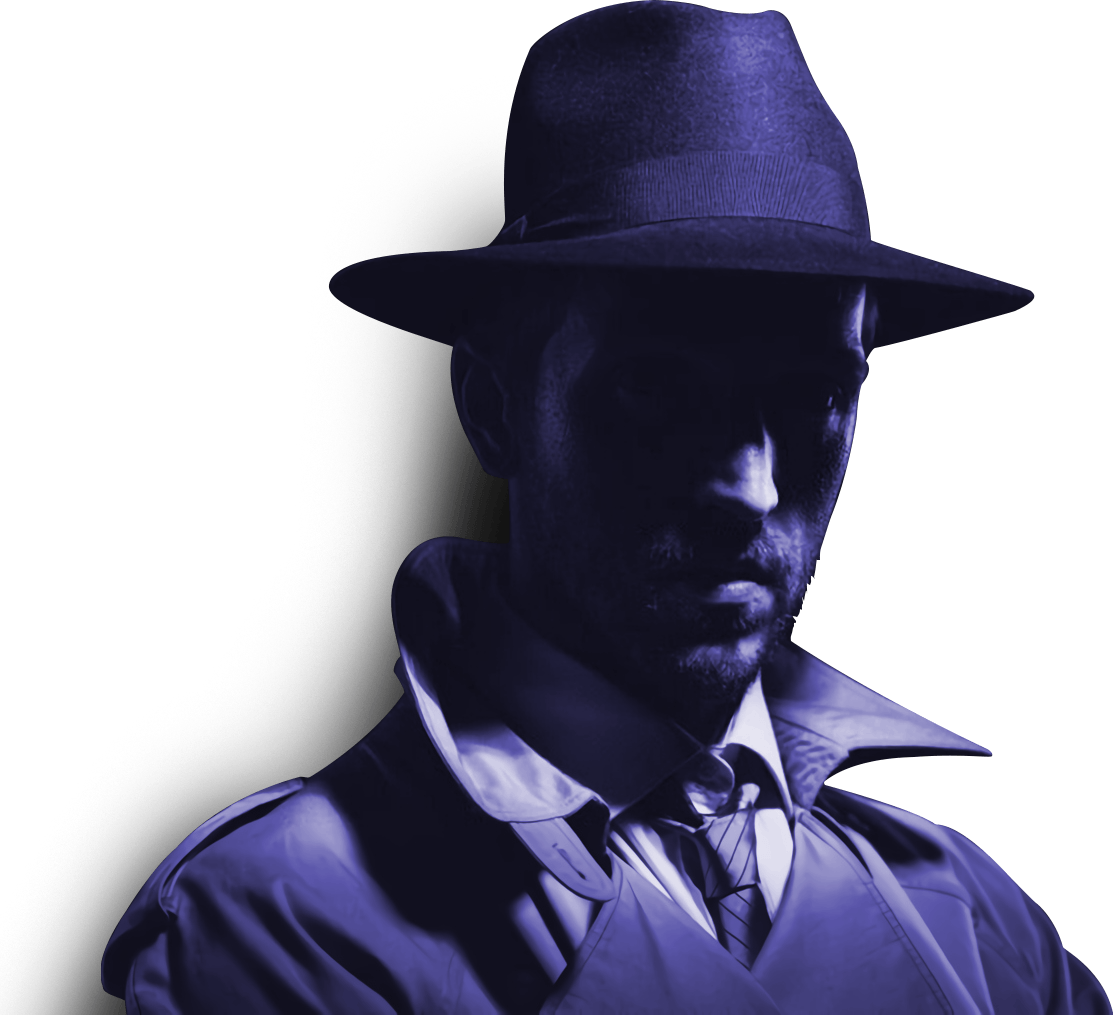What Can A Private Investigator Do And Not Do

I've always been fascinated by the world of private investigation. The idea of uncovering secrets and solving mysteries has a certain allure that's hard to resist. But what can these investigators actually do, and more importantly, what are they not allowed to do?
In this article, we're going to explore what can a private investigator do and not do and the ins and outs of the private investigation industry. From the skills needed for PI work to legal limits on their investigative techniques, we'll cover everything you need to know about what these professionals can and cannot do. So, before you hire a private detective, make sure you understand what a PI can do.
So whether you're thinking about hiring a private investigator or just curious about how they operate, read on for an insider's look at this intriguing field.
What Private Investigators Do
So, you're probably wondering what a private investigator can actually do for you. Well, let me tell you - they can gather information, conduct surveillance, and even uncover hidden assets.
A licensed private investigator must have extensive knowledge of the law and be able to navigate complex scenarios with ease. They often work on behalf of individuals or companies to find out information that may be difficult or impossible to obtain through other means.
One of the primary tasks of a private investigator is gathering information through various methods. This may include conducting interviews with witnesses, searching public records, or using online resources to dig up relevant data. In some cases, a private investigator may even go undercover to gather information discreetly without alarming anyone involved in the situation.
Another important aspect of a private investigator's job is conducting surveillance. This could involve following someone suspected of wrongdoing, monitoring their activity from a distance, or setting up cameras and other equipment to capture evidence. However, it's important to note that there are strict laws governing how surveillance can be conducted by a licensed private investigator.
As we'll discuss in more detail later on, consent and trespassing are two major issues that must be taken into consideration when carrying out investigative work.
Nonetheless, these are just some examples of what a skilled and experienced private investigator can accomplish for their clients - whether it's tracking down missing persons or uncovering fraud within an organization.
Consent And Trespassing
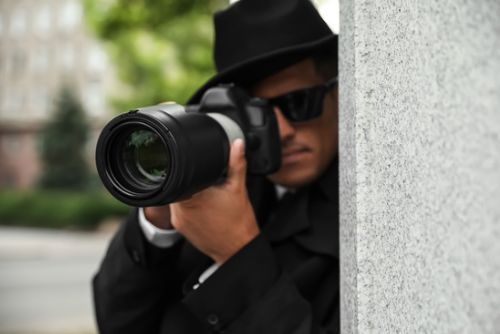
You may face legal consequences if you enter private property without the owner's permission, even if it's to gather evidence for an investigation. As a private investigator, it's crucial to understand the laws and regulations surrounding trespassing and consent.
Here are a few things you should keep in mind:
- Being caught on someone's property without their consent can result in criminal charges.
- Even if you're legally allowed to be on the property (such as through a search warrant), any evidence gathered must be obtained legally and ethically.
- Trespassing can damage your credibility as an investigator and harm your reputation.
It's essential to remember that as a private investigator, your job isn't to break the law or violate people's rights. Instead, you should strive for ethical behavior at all times.
When considering hiring a private investigator, it's vital to find someone who understands these laws and regulations. A reputable investigator will follow all legal and ethical guidelines while gathering evidence for your case. By doing so, they ensure that any information gathered will hold up in court and won't cause legal repercussions down the line. So, don't be worried that your
Miami private investigator will break into your or anyone else home.
Hiring Private Investigators
If you're looking to gather evidence for a case, hiring a private investigator who understands the legal and ethical guidelines is crucial. It's important to note that not everyone can become a licensed private investigator as there are requirements such as experience in law enforcement or investigations, passing an exam, and having no criminal record. Therefore, it's essential to do background checks on potential investigators before hiring them.
When hiring a private investigator, it's important to make sure they have experience in handling cases similar to yours. You should also ask about their methods of gathering evidence and how they plan on keeping you informed throughout the process. Trust and communication are key when working with a private investigator.
Moving forward into the next section about accessing online accounts, keep in mind that some private investigators may use illegal tactics such as hacking into accounts without consent. As a responsible client, it's your job to ensure that your hired professional follows ethical guidelines while still providing efficient services.
Accessing Online Accounts

To access online accounts, it's important to consider ethical and legal guidelines and ensure that any methods used are within the boundaries of the law. As a private investigator, I understand the importance of maintaining professionalism when conducting investigations that involve accessing online accounts. Here are a few things to keep in mind:
- Always obtain written consent from the account owner before attempting to access their account.
- Do not use phishing or hacking techniques to gain access as this is illegal and unethical.
- Use only legally available information such as public records or information provided by the account owner.
- Keep all information obtained confidential and use it only for investigative purposes.
- Be aware of data protection laws and ensure that any sensitive information is handled appropriately.
It's important to remember that as private investigators, we cannot hack into online accounts under any circumstances. While some may promise quick results through illegal means, it's crucial to stick within legal boundaries and maintain a professional reputation.
In the next section, we'll take a closer look at what constitutes hacking and how it differs from legal methods of accessing online accounts.
Hacking Online Accounts
It's crucial to understand the consequences of hacking online accounts and the potential damage it can cause. As a private investigator, I can't hack into someone's online account without facing serious legal repercussions. That's why it is important to be aware of what can a private investigator do and not do.
Hacking is illegal and considered a criminal offense punishable by law. However, private investigators can use legal means to access information on social media platforms and other online accounts with permission from the account owner or through lawful methods such as court orders.
The line between what private investigators can and cannot do when it comes to accessing online accounts is often blurred, so it's essential for us to stay within the boundaries of the law.
While hacking online accounts may seem like an easy solution in some cases, as a private investigator, it's not a viable option. Instead, we rely on legal means to access information that will help our clients achieve their goals.
Moving forward, let's talk about how private investigators utilize photography in their work.
PIs And Photography

When you're working as a private investigator, utilizing photography can be an effective tool for gathering evidence and providing visual context to support your findings. However, it's important to remember that there are certain limitations when it comes to taking photos.
Private investigators cannot take photos in places where people have a reasonable expectation of privacy, such as bathrooms or changing rooms. Additionally, it's important for PIs to obtain proper consent before taking any photographs.
This means getting permission from the person being photographed or the owner of the property if you're taking pictures on private property. Failure to do so could result in legal consequences and damage your reputation as a professional investigator.
Incorporating photography into your investigative techniques can be valuable, but it's crucial to understand the boundaries and limitations associated with this method. With this knowledge in mind, PIs can use photography responsibly and effectively in their work.
Now let's move on to discussing another important aspect of investigations: conducting thorough background checks.
Background Checks
You'll want to know everything about the person you're investigating, and one of the best ways to do that is by conducting thorough background checks. As a private investigator, I've got access to databases and resources that can gather information on an individual's criminal history, employment history, financial records, and even social media activity.
This information can be invaluable in providing insight into a subject's character and potential motives. However, it's important to note that there are limits to what a private investigator can legally obtain during a background check.
For example, I can't access someone's credit report without their written consent or a permissible purpose under federal law. Additionally, certain types of criminal records may be sealed or expunged depending on the state laws where the offense occurred. It's crucial for PIs to understand these limitations and always operate within legal boundaries.
Ultimately, conducting background checks is just one tool in a private investigator's arsenal for gathering information. While it can provide valuable insights into a subject's past behavior and tendencies, it should never be relied upon as the sole source of evidence or proof of guilt.
In the next section, we'll discuss another important aspect of PI work: navigating private property and trespassing laws when conducting surveillance.
Private Property And Trespassing
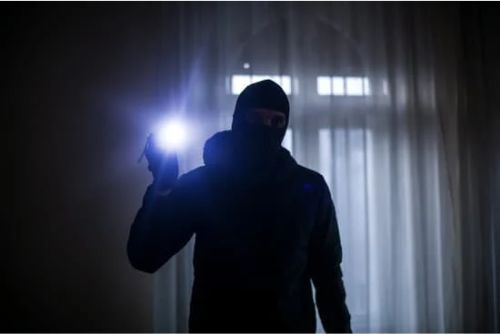
Navigating private property and trespassing laws can be a challenging aspect of a PI's job, especially when conducting surveillance. As a private investigator, I'm not allowed to enter any private property without permission from the owner or an authorized agent. This means that I can't walk onto someone's land or into their home, even if it's just to observe what's happening. If you own a home in South Florida, a Tampa private investigator can't just break into some ones house.
Trespassing is a serious offense that can result in legal consequences for the individual involved. As such, private investigators must be very careful when it comes to entering private property or conducting surveillance in public places. It's important to always respect people's privacy rights and abide by the law.
If there's a need to conduct surveillance on private property, I would need to obtain written permission from the owner or authorized agent beforehand. Failure to do so could result in legal action against me as the investigator. It may require some extra legwork and communication with clients, but it ultimately ensures that my actions are within legal bounds while still achieving our objectives.
As you consider becoming a PI yourself, understanding these limitations on entering private property will be key to successful investigations. But rest assured – there are many other ways we can gather information and help our clients achieve their goals without breaking any laws!
Becoming A PI
Becoming a private investigator requires extensive training and experience in various investigative techniques. These skills are necessary to effectively gather evidence, conduct interviews, and analyze data. Aspiring PIs can pursue formal education in criminal justice or related fields, but many successful investigators also come from law enforcement or military backgrounds.
To become a PI, one must also have a thorough understanding of the bounds of the law. This means having knowledge of federal and state laws regarding surveillance, privacy rights, and evidence collection. It's important for PIs to obtain proper licensing and follow ethical guidelines set by their profession.
Additionally, becoming a private investigator requires a certain level of innovation. PIs must be able to adapt to changing situations and think creatively when faced with obstacles during investigations. They must also stay up-to-date on technology advancements that can aid in their work. However, it's crucial that they do so within legal boundaries and without violating individuals' rights.
Moving forward into the next section about accessing information without consent, it's important to keep in mind the ethical considerations involved in gathering information as a private investigator.
Accessing Information Without Consent
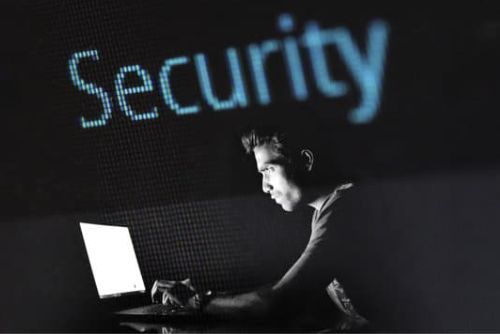
Accessing information without consent can be a tricky ethical issue for private investigators. On one hand, we need to gather evidence and uncover the truth about a case, but on the other hand, we must respect people's privacy rights. It's important to note that there are strict laws governing what a private investigator can and cannot do when accessing information. As a private investigator, I understand the importance of following these laws when accessing information without consent. One of the key factors is ensuring that any information we access is only used for legitimate purposes related to our investigation. This means avoiding any actions that could be seen as violating someone's privacy or infringing on their rights.
It's crucial for us as private investigators to navigate this ethical issue with care and professionalism. We must balance our need for evidence with respecting people's privacy rights and always follow the law when accessing information without consent.
Next, let's explore another important aspect of being a private investigator - carrying a badge.
Carrying A Badge
Carrying a badge is like wearing your authority on your sleeve, signaling to others that you have the power to investigate and uphold the law. As private investigators, we're often required to carry a badge depending on the nature of our work. This gives us the ability to access restricted areas, talk to witnesses, and collect evidence with ease.
With this privilege comes great responsibility; private investigators aren't police officers and don't have the same authority to make arrests. It's important for us as investigators to remember that carrying a badge doesn't give us unlimited power. We must abide by all laws and regulations while conducting our investigations.
That being said, having a badge can be helpful in certain situations as it can help establish credibility with witnesses or potential suspects. However, it shouldn't be used as an intimidation tactic or abused in any way. At the end of the day, carrying a badge is just one tool in our investigative arsenal and should be used appropriately alongside other skills needed for PI work such as attention to detail and critical thinking.
Skills Needed For PI Work
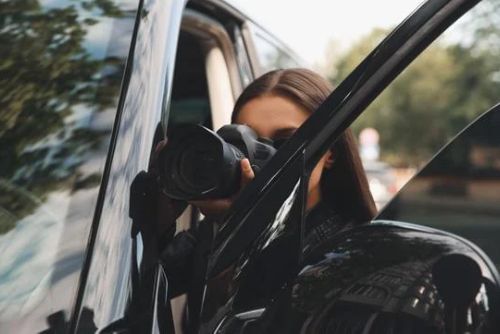
You'll need to have a sharp eye for detail and be able to think critically in order to excel as a private investigator. This job requires a unique set of skills that are essential for any investigative work. As a PI, you'll be tasked with gathering information about individuals or groups through various means such as surveillance, interviews, and data analysis.
One important skill needed for PI work is the ability to conduct thorough research. Investigative work often involves digging deep into databases and other sources of information to uncover clues about people's backgrounds, habits, and associations.
You should also be comfortable with technology since much of the evidence you gather will likely come from digital sources such as social media accounts or online records.
Another critical skill for successful private investigation is the ability to analyze information effectively. Once you've gathered all relevant data, you'll need to sift through it carefully and draw connections between seemingly unrelated pieces of information. This requires strong analytical thinking skills along with an innate sense of intuition that can help guide your investigations in the right direction.
Becoming a private investigator requires specific skills that are crucial for success in this field. From conducting extensive research to analyzing data effectively, it takes dedication and hard work to become proficient at this type of investigative work.
In the next section, we'll explore some legal limits that private investigators must adhere to when carrying out their duties.
Legal Limits For Private Investigators
As a private investigator, it's crucial to understand the legal limits that come with our job. We can't just do anything we want in order to gather information for our clients. In fact, there are strict rules and regulations that must be followed during investigations.
One of the most important things to keep in mind is obtaining consent from those we're investigating. Without consent or proper authorization, any evidence gathered may not be admissible in court.
Another key aspect of our legal limits is avoiding invasion of privacy and trespassing on private property. While we may be hired to uncover secrets or find information, we must do so within the confines of the law. This means not breaking into someone's home or hacking into their personal accounts without permission. It also means respecting boundaries when conducting surveillance and not engaging in any behavior that could be seen as harassment.
Overall, being a private investigator requires a delicate balance between gathering information and respecting legal boundaries. While it can be tempting to cross lines in order to get results quickly, ultimately this will only harm our reputation and potentially lead to legal consequences. As such, it's crucial for PIs to constantly educate themselves on current laws and regulations regarding investigative work.
Investigative Techniques

Mastering investigative techniques is essential for uncovering the truth and obtaining justice, evoking a sense of pride and determination in those who aspire to become skilled private investigators. As a private investigator, I've learned that staying up-to-date with the latest investigative techniques is crucial for success.
Here are three investigative techniques that every private investigator should know:
- Surveillance: One of the most common and effective investigative techniques used by private investigators is surveillance. This technique involves observing an individual or group without them knowing, often through the use of cameras or other recording devices.
- Forensic analysis: Another important technique used by private investigators is forensic analysis. This technique involves analyzing physical evidence such as DNA samples, fingerprints, and blood splatters to gather information that can be used in legal proceedings.
- Background checks: Finally, background checks are another key investigative technique utilized by private investigators. These checks involve researching an individual's past to gather information about their criminal history, financial records, and personal relationships.
While these investigative techniques can be incredibly useful in gathering evidence and building a case, it's important to remember that there are legal limits to what private investigators can do.
In the next section on ethical considerations, we'll explore some of these limitations further.
Ethical Considerations
Navigating ethical considerations is crucial for any investigative work, as it ensures that justice is pursued in a fair and just manner. Private investigators have the power to gather information about individuals' personal lives, and this can potentially infringe on their right to privacy. As such, private investigators must be careful not to overstep ethical boundaries when conducting their investigations.
One of the most important ethical considerations for private investigators is respecting an individual's right to privacy. Although investigators may need to conduct surveillance or gather information about someone's personal life, they must do so within legal limits and without violating the individual's basic rights. This means that investigators must take care not to invade someone's privacy by using illegal surveillance methods or accessing confidential information without appropriate authorization.
Another key ethical consideration for private investigators is maintaining confidentiality. Investigators often work with sensitive information, such as financial records or criminal histories, which should only be shared with authorized parties. It's essential for St Petersburg private investigators to maintain strict confidentiality agreements with clients and ensure that all sensitive information remains secure at all times. By doing so, they can preserve trust with clients and safeguard against potential legal issues related to data breaches or unauthorized disclosures.
Navigating ethical considerations is critical for any private investigator looking to deliver justice in a fair and just manner while protecting the rights of those involved. Respecting an individual's right to privacy and maintaining confidentiality are two essential factors that should always be taken into account when conducting investigations. By following these guidelines, private investigators can provide valuable services while upholding high standards of ethics and professionalism in their work.
Final Thoughts
So, as a private investigator, I must know what can a private investigator do and not do. I can conduct surveillance, gather evidence, interview witnesses, and use various investigative techniques to uncover information. However, I must always stay within legal limits and ethical considerations.
When it comes to accessing online accounts or hacking into them, this is not something that I'm legally allowed to do without consent from the account owner. Trespassing is also off-limits unless necessary for a case and with proper authorization.
It's important for individuals who are looking to hire a private investigator to understand these limitations and ensure that they're hiring someone who operates within legal bounds.
Overall, being a private investigator requires a combination of skills such as critical thinking, attention to detail, communication abilities, and physical stamina. But at the end of the day, my goal is always to assist clients in obtaining the information they need while operating within legal boundaries and ethical considerations.
Frequently Asked Questions
What Is The Typical Cost Of Hiring A Private Investigator?
When it comes to hiring a private investigator, the cost can vary greatly depending on the complexity of the case and the amount of time needed to complete it. On average, you could be looking at anywhere from $50 to $200 per hour for their services. Florida private detectives are on the more expensive side.
However, some investigators may charge a flat fee for certain types of cases or offer a discounted rate for longer investigations. It's important to keep in mind that while cost is certainly a factor, choosing an experienced and reputable private investigator who can deliver results should be your top priority.
Can A Private Investigator Obtain Information About Someone's Medical Records?
As a private investigator, I know that obtaining someone's medical records is not within my legal boundaries. This type of information is protected by HIPAA laws and can only be accessed by authorized personnel such as doctors or healthcare providers with the patient's consent.
However, there are still several ways for me to gather relevant information about an individual without violating their privacy rights. Through surveillance techniques and online research, I can uncover important details about a person's activities, relationships, and financial situation.
As technology continues to evolve, so do my investigative methods, allowing me to provide innovative solutions for my clients' needs while adhering to ethical standards and legal regulations.
What Is The Legal Recourse If A Private Investigator Oversteps Their Boundaries?
If a private investigator oversteps their legal boundaries, there are several options for recourse.
The first step would be to file a complaint with the state licensing board that oversees private investigators. This could result in disciplinary action or even revocation of the investigator's license.
Additionally, if the investigator broke any laws during their investigation, such as trespassing or accessing protected information like medical records, they could face criminal charges.
It's also possible to sue the investigator for damages caused by their actions. However, it's important to note that prevention is key - always make sure you hire a licensed and reputable private investigator who follows all legal and ethical guidelines.
Can A Private Investigator Carry A Weapon While On The Job?
Yes, as a licensed private investigator, I'm allowed to carry a weapon while on the job. However, this privilege comes with great responsibility and strict guidelines must be followed.
Each state has its own laws regarding weapons and private investigators, so it's crucial that I stay up-to-date with these regulations. Additionally, carrying a weapon should only be necessary in certain situations where my safety or the safety of others is at risk.
Otherwise, my main focus as a private investigator is to gather information legally and ethically without resorting to physical force or violence. Innovation in our industry means finding new and creative ways to conduct investigations using technology and other non-violent methods.
Is There A Minimum Age Requirement To Become A Private Investigator?
To become a private investigator, there is usually a minimum age requirement of 18 years old. However, this can vary depending on the state or country in which you are located.
As someone who's interested in innovation and finding new ways to approach problems, I find the idea of becoming a private investigator fascinating. Not only do they have the ability to carry weapons while on the job (depending on local laws), but they also have access to cutting-edge technology and techniques for gathering information and solving cases.
While there are certainly limitations to what a private investigator can and can't do, their unique skill set allows them to tackle challenges that others may not be able to solve. Whether it's tracking down missing persons or uncovering corporate fraud, being a private investigator requires creativity, resourcefulness, and an unwavering commitment to finding the truth.





